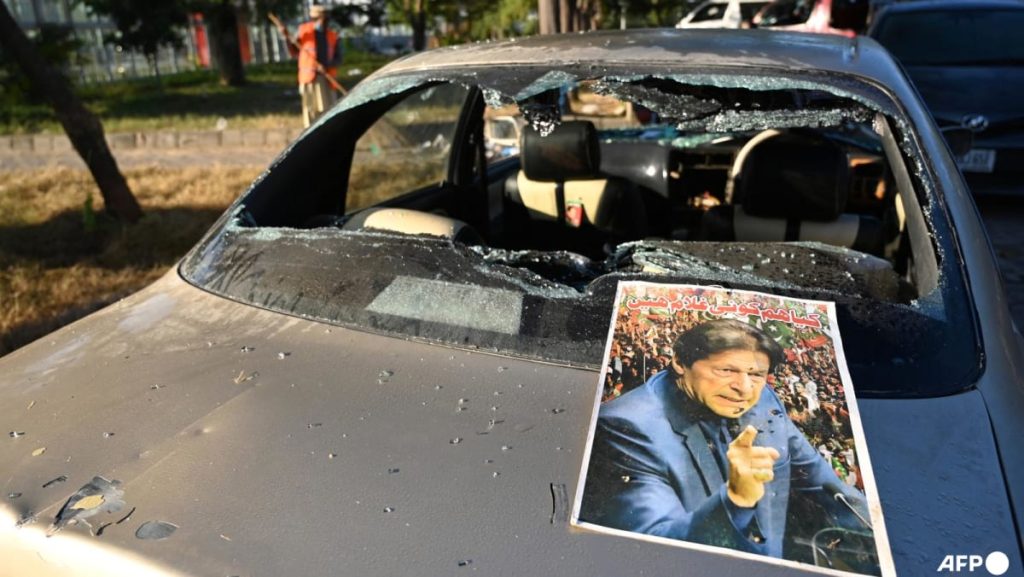Imran Khan’s political trajectory in Pakistan has been a tumultuous journey marked by a rapid ascent to power, a dramatic ouster, subsequent persecution, and an enduring struggle against the established power structures. His tenure as prime minister, spanning from 2018 to 2022, was characterized by a populist appeal, ambitious reforms, and a strained relationship with the powerful military establishment, a force that has traditionally played a kingmaker role in Pakistani politics. This tension ultimately culminated in Khan’s removal from office through a parliamentary no-confidence vote in 2022, an event he directly attributed to the machinations of the then-military chief. This marked the beginning of a protracted period of legal battles and political maneuvering that continues to shape the political landscape of Pakistan.
Following his ouster, Khan became the target of a relentless series of legal challenges, which he vehemently denounces as politically motivated attempts to silence him and curtail his political influence. His initial arrest in May 2023, though brief, foreshadowed the intensified crackdown that would follow. Three months later, he was rearrested and has remained incarcerated since, facing a barrage of court cases ranging from corruption allegations to charges related to inciting unrest. This sustained legal offensive has effectively sidelined Khan from active political participation, preventing him from leading his party, Pakistan Tehreek-e-Insaf (PTI), and challenging the government that succeeded him. International observers, including a United Nations panel of experts, have expressed serious concerns about the legality and political motivations behind Khan’s detention, further fueling the narrative of persecution.
The crackdown extended beyond Khan himself, targeting the PTI as a whole. Thousands of party supporters and senior officials were arrested in the aftermath of widespread unrest that followed Khan’s initial arrest, effectively crippling the party’s organizational capacity and stifling dissent. This concerted effort to dismantle the PTI’s grassroots network and silence its leadership underscores the extent to which the authorities perceived Khan and his party as a threat to the established order. The subsequent barring of Khan from contesting the February 2024 elections, coupled with allegations of rigging, further solidified the perception of a politically motivated campaign to marginalize him and his party.
Despite the relentless pressure and the systematic dismantling of its organizational structure, the PTI demonstrated remarkable resilience in the February 2024 elections. Against all odds, the party secured more seats than any other, a testament to Khan’s enduring popularity and the widespread public discontent with the ruling coalition. However, the PTI’s electoral victory was ultimately rendered hollow. A coalition of parties perceived as more amenable to military influence formed the government, effectively shutting out the PTI from power. This outcome cemented the military’s continued dominance over Pakistani politics and underscored the limitations of electoral processes in challenging the established power dynamics.
The UN panel’s findings in September 2024, which concluded that Khan’s detention lacked legal basis and was likely intended to prevent his political participation, further validated Khan’s claims of political persecution. This international condemnation adds weight to the growing concerns about the erosion of democratic norms and the rule of law in Pakistan. The targeting of a popular political leader and the suppression of his party raise serious questions about the fairness and transparency of the political process, and the ability of opposition voices to effectively challenge the status quo.
Imran Khan’s ongoing legal battles and the sustained pressure on the PTI represent a critical juncture in Pakistan’s political landscape. The outcome of this power struggle will have profound implications for the future of democracy in the country. Whether Khan can successfully navigate the legal challenges, overcome the political obstacles, and re-emerge as a dominant force in Pakistani politics remains uncertain. However, his enduring popularity, the resilience of his party, and the growing international scrutiny of his case suggest that the struggle for political power in Pakistan is far from over. The coming months and years will be crucial in determining whether Pakistan can uphold democratic principles and ensure a level playing field for all political actors, or whether it will continue down a path of political polarization and suppression of dissent.

